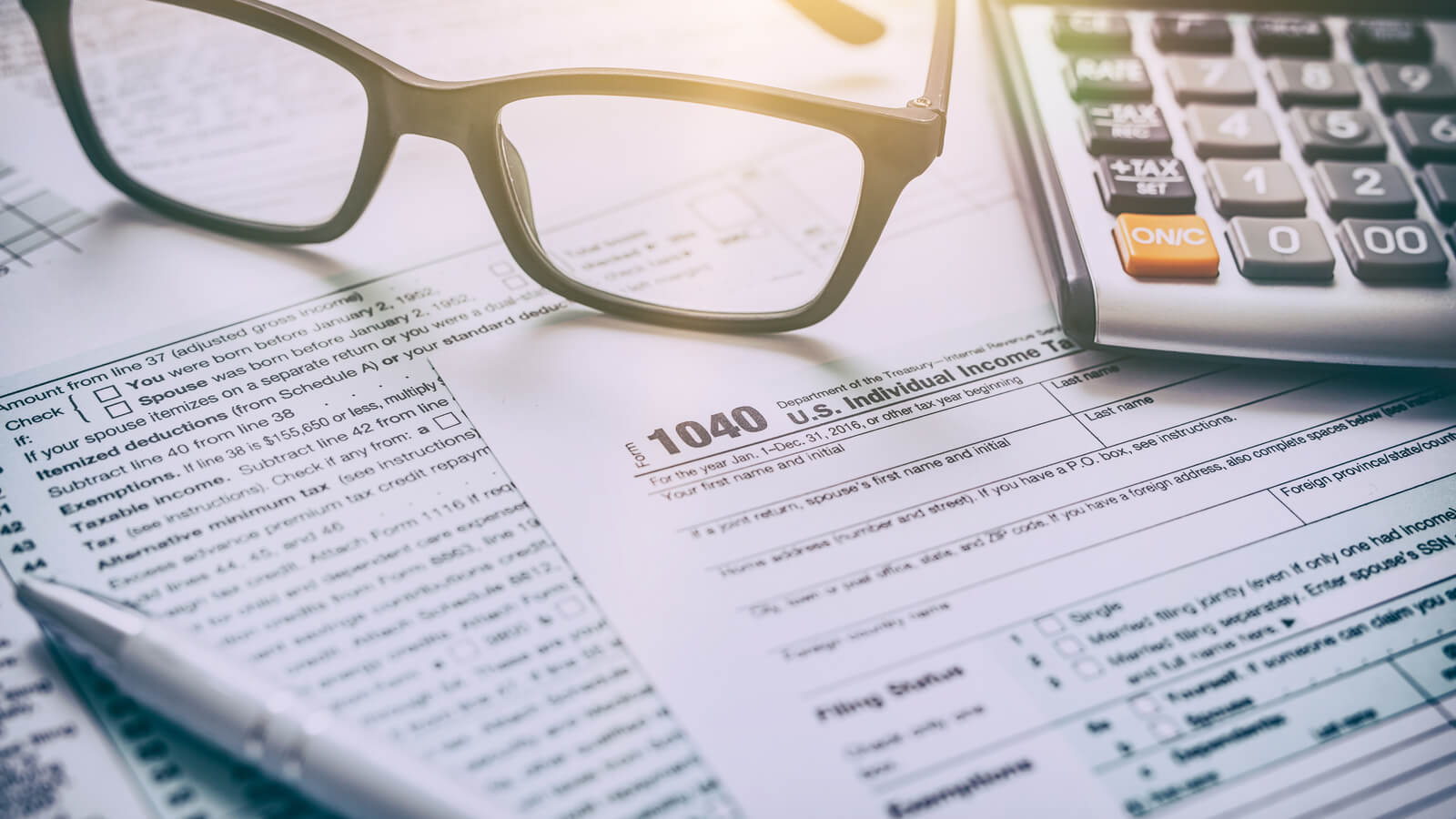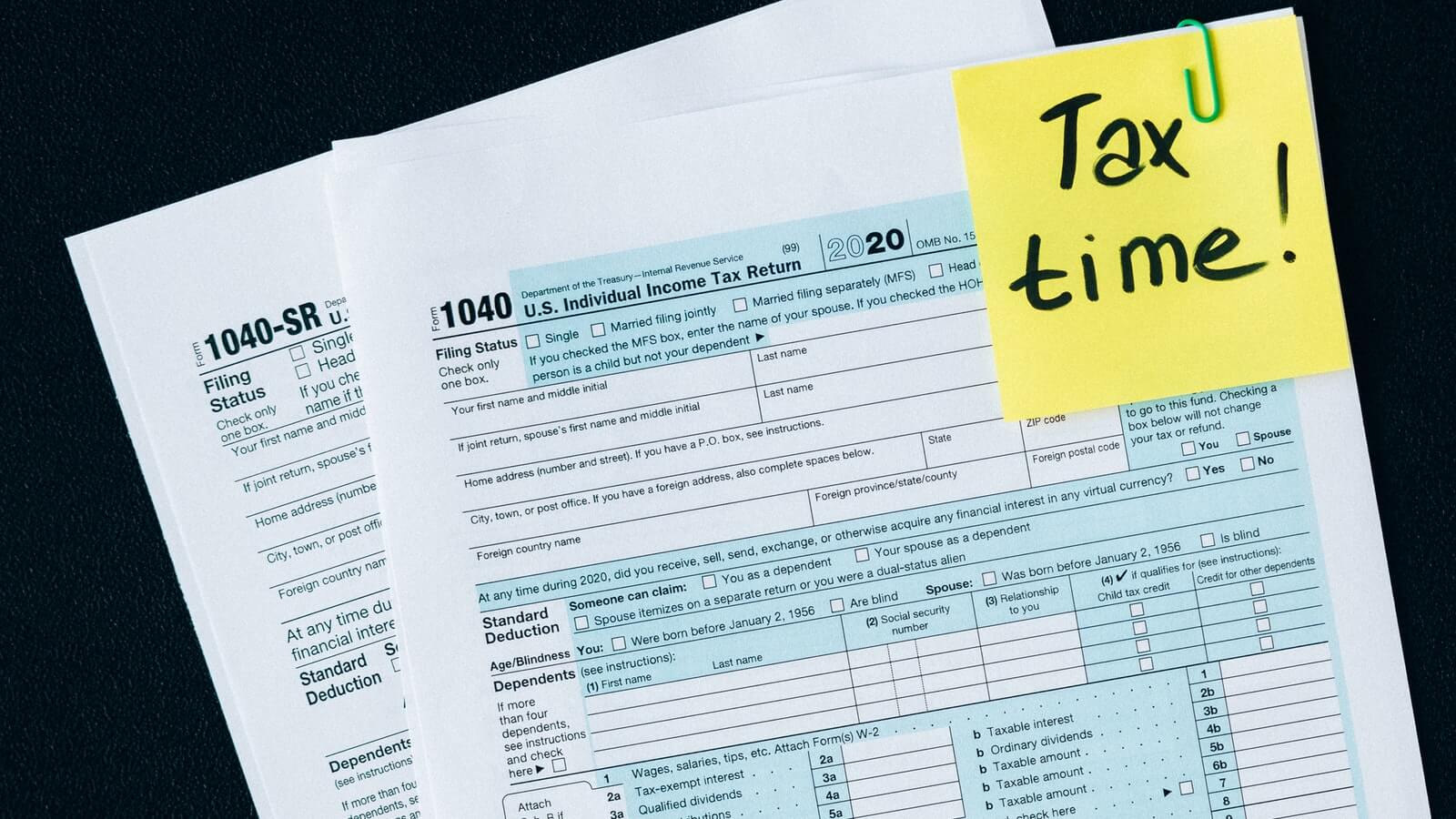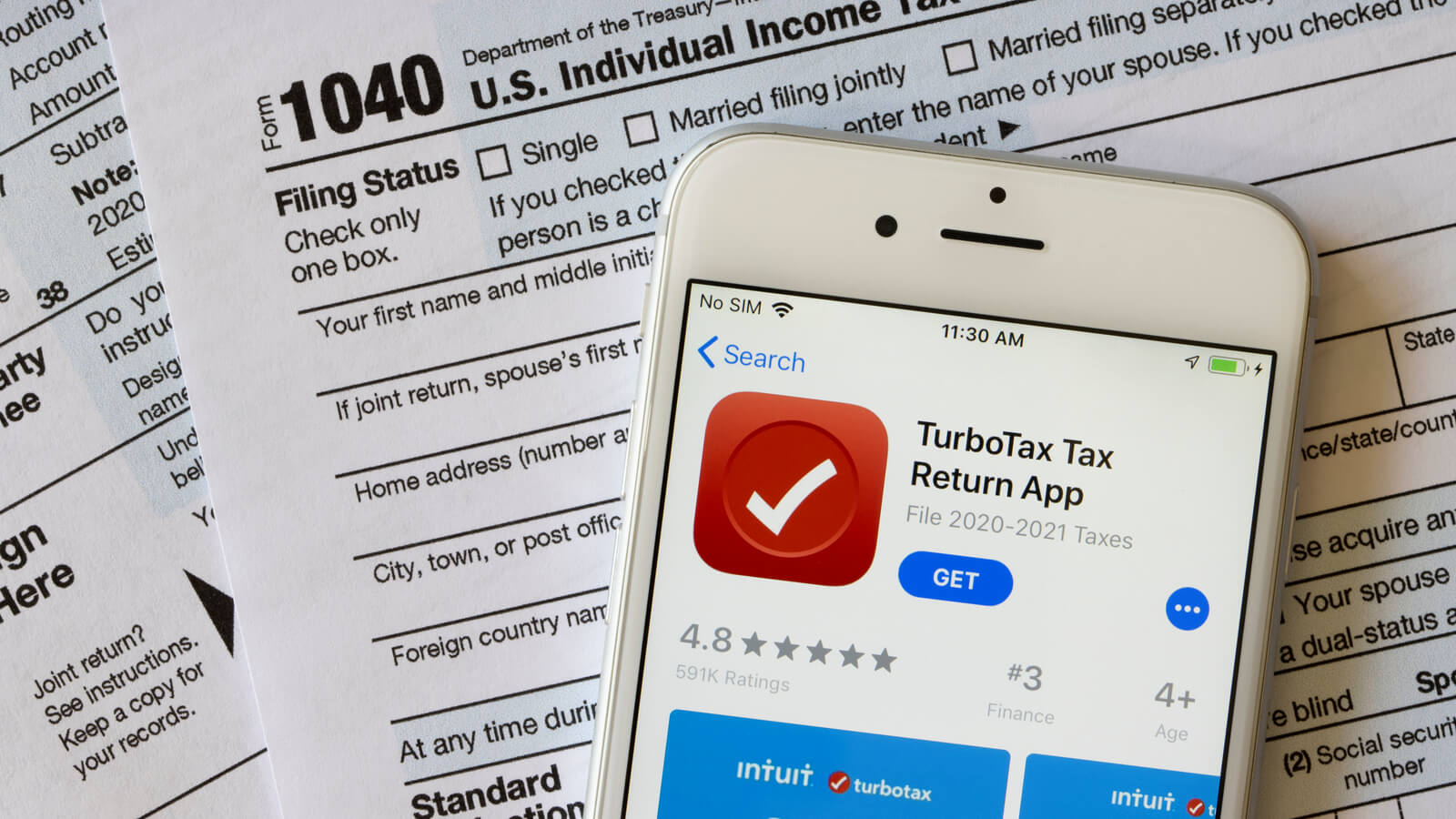You can fix your mistake by filing an amended return as soon as possible to avoid paying more in penalties.
After all the trouble you probably went through filing your personal or business return, the last thing you’d want to find out is that you made a mistake.
It’s common for small business owners to make a mistake if they’re doing their own returns for the first time. Fortunately, the solution is fairly simple: You can file an amended return.
You have to file an amended return when you give the IRS the wrong information, like the wrong Social Security number, address or tax status for your business. You’re off the hook for filing an amended return if the error was math-related, like adding things up. You also don’t need to worry about matching-related errors, like listing your W-2 income as $95,000 instead of $94,000 if you e-file.
If you have a tax balance due, you should amend your return as soon as possible. You might have to pay more in penalties and interest the longer you put it off. The easiest way to get your mistake resolved is usually to hire a CPA so you don’t have to worry about filing another return or making more mistakes.
Contents |
| Common mistakes on tax returns |
| How to file an amended return |
| How to avoid mistakes on your tax return |
| What happens if you don't fix a mistake on your tax return |
Common mistakes on tax returns
Tax returns for small business owners are complicated, and it’s easy to make mistakes. These are the top mistakes we see small business owners run into when they’re new to filing returns.
Note that any math errors you make don’t require an amended return. The IRS will fix those for you and let you know whether you’ll owe more or get a refund after the error.
1. Classifying your business incorrectly
There are several ways your LLC can be taxed — and it’s crucial that you know exactly how yours is. It affects how you get paid, how you run your business and how you file tax returns.
Partnership and S corporation owners must file an additional tax return on top of their Form 1040 every year. Partnerships file a Form 1065 and S corps file a Form 1120-S, but many small business owners doing their own taxes for the first time don’t know that.
Instead, they mistakenly report their partnership or S corp income on Schedule C of their 1040 without ever filing a business tax return. This leads to the IRS believing you’re a sole proprietor instead of a partnership or an S corp, which you can get in trouble for. You’ll be penalized if you don’t file a business return if you’re supposed to.
2. Treating your home office deduction incorrectly
The home office deduction is one of the most common deductions, but it’s confusing. Some small business owners either take it incorrectly — or not at all.
There are two ways of taking it. Your first option is the simplified option, which works like a standard deduction and makes your life a little easier. Many people mess up when they opt for the regular method of taking the deduction. It’s more time-consuming, but can allow you to save more.
When small business owners deduct using the regular method, they usually don’t deduct enough of the costs associated with their home. That can include insurance, utilities and other expenses you might not view as business-related, but can be considered as business-related regardless.
3. Not deducting your vehicle
Regardless of your job and industry, there’s a good chance you use your vehicle for business purposes. You might not view them as a direct business expense, but they typically are — and not labeling it so on your tax return is a mistake.
You don’t need to be an Uber driver to label your vehicle as a business expense. You just need to use it in some capacity related to your business, like meeting with clients or driving to events for work.
Of course, you also use your vehicle for purely personal reasons. Those expenses aren’t deductible, so you need to separate personal use from business use when filing your tax return.
Some business owners don’t deduct anything at all from their vehicle, which costs them even more.
4. Messing up your Social Security Number
This is an easy mistake to miss. You should always go back and check whether your Social Security Number (SSN) is written correctly on your tax return before you file.
Even if everything else on your tax return is correct, the IRS can still reject it and send you a notice if your SSN is incorrect. Note that this only applies if you originally paper filed your return. If you e-filed, the IRS will amend matching errors like this for you. You wouldn’t want to go through the hassle of completing a tax return just to have to amend it because of a minor error like that.
The same mistake applies to Employer Identification Numbers, which is like your business’ SSN, on amended partnership and S corp returns. Always make sure your personal information like your SSN, address and name are written and spelled correctly.
5. Missing additional forms
You often need to attach forms to your tax return when you file. You should be attaching any documents that you’ve received as a taxpayer that show any withheld taxes, like your W-2s.
Those forms will help the IRS verify the income you listed on your tax return. The IRS will likely send you a notice if you don’t attach the correct forms. This is a common mistake for small business owners because they believe that the only thing they need to send the IRS is their actual tax return. But those additional forms are just as important.
6. Not making enough deductions
The IRS won’t send you a notice or reject your return for this mistake — but you should still fix it.
If you’re doing your tax return for the first time as a small business owner, learning what you can deduct is confusing. You can deduct many expenses that relate to your business. But you should also deduct things that aren’t as tightly wound with your business as things like office rent and supplies. Learn more about the difference between personal expenses and business expenses here.
You should be making deductions every time you’re eating, drinking, sleeping or thinking about your business. That includes your business meals, drinks at the bar with clients, hotel rooms for business trips and a wide range of other expenses.
So if you didn’t deduct anything outside of your typical business expenses, you should file an amended return or hire a CPA to do so for you.
How to file an amended return
If you made any of the mistakes above, you can fix them by simply filing an amended tax return.
The process differs between amended personal returns, partnership returns and S corp returns. But with all of them, you have three years to amend a return after it was originally filed.
How to amend a personal return (1040)
What: You need to file Form 1040-X to amend your personal tax return.
How: You can either e-file or paper file your 1040-X. E-filing might sound easier, but the best way to file an amended return is by mail. It’s easier to attach the correct forms when you paper file. Form 1040-X will also ask you to explain the changes you made.
Once you complete the form, use certified mail and return receipts to mail your return to the proper address listed here.
When: You can amend your return up to three years after filing your original return.
How to amend a partnership return (1065)
What: You need to file Form 1065-X to amend your partnership tax return.
How: You can only paper file 1065-X. Complete the amended return, attach the necessary forms and fill out the portion asking you to explain why you’re amending your return. Then mail it using certified mail and return receipts.
When: You can amend your return up to three years after filing your original return.
How to amend an S corp return (1120-S)
What: There is no separate form for an amended S corp tax return. You need to file another Form 1120-S.
How: Check the box near the top of the form that says amended return and complete it with your new information. You can either e-file or paper file your amended return — but you should paper file when you can. Use certified mail and return receipts if you paper file.
When: You can amend your return up to three years after filing your original return.
How to avoid mistakes on your tax return
These mistakes are easily fixable, but avoidable.
Two measures you can take are hiring a CPA and double checking your return before you file it. A CPA can help you with the complicated parts like credits and deductions, and you can still prevent mistakes by making sure the details like your address, SSN and EIN are correct.
Hire a CPA
Having a CPA isn’t a requirement, but it is a worthwhile investment that helps you avoid a lot of mistakes on your tax return.
Individuals without their own business or contract work are typically fine just filing their tax return on TurboTax. But the more complex your tax return is, and business owners’ are always complicated, the easier it is to mess up. Even if you use TurboTax to simplify the process, you’re still the one calling the shots and deciding what information goes on there — so it’s possible to still mess up your return. Hiring a CPA from the get-go can help you avoid both the simple and complicated mistakes.
Hiring a CPA comes with its cons: They cost more than services like TurboTax and it may take longer to get your return done.
But the benefits are often worth it for small business owners, since you’ll have an expert helping you maximize your deductions and credits the right way. A CPA can also represent you for legal matters involving the IRS if they have any questions or concerns about your return. You’ll also have more time to focus on the parts of your business you love without the stress of filing your tax return looming over you until the deadline.
Double-check your return
Even without a CPA, you can still avoid mistakes by simply double-checking your tax return.
You should specifically look at the things you think are the most basic, like your address, SSN, name, tax classification, etc. Those details are often overlooked and cause your tax return to be rejected — which may lead to penalties.
It may be difficult to double-check the meat and potatoes of your tax return — your deductions, credits, etc. — if you’re filing as a business owner for the first time. That’s where a CPA or other tax professional can be especially helpful. But getting those minor details right is something you can do with or without a professional.
What happens if you don’t fix a mistake on your tax return
This depends on your financial situation and the mistake.
People who are due to receive a refund and make a mistake on their return won’t have to pay penalties or interest. If the IRS rejected that return, they simply won’t receive that refund until the mistake is corrected on an amended return within the three years you have.
But if you owe a tax balance — which most small business owners do — you could be racking up penalties and interest if you don’t fix the mistake the IRS notified you of. (You can disagree with an IRS notice, especially if it says you owe them more money. You should seek a CPA or enrolled agent to help you challenge a notice if you think it’s wrong.) So even though you have three years to amend your return, you should get it fixed as soon as possible.
There are mistakes mentioned above that the IRS won’t press you on, like not making enough deductions. You won’t be accruing interest or paying penalties in cases like that. However, you’re leaving money on the table that you could be using to grow your business. So you don’t have to be as quick to amend your return, but it’s still a worthwhile priority.
Regardless of your situation, you have three years to amend your return.
The bottom line
Nobody starts a small business because they’re excited to file complicated tax returns. As a result, many of them just aim to get it over with, and make costly mistakes.
The fix for a mistake on personal, partnership or S corp returns is filing an amended return. Depending on your mistake, pushing it off can result in you paying more in penalties and interest.
Every small business owner should take the measures of learning the most common mistakes, hiring a CPA and double-checking your return before filing to avoid those extra fees — and the extra stress.
Learn how you can drop the stress and worry of making a mistake on your tax return by scheduling a free call with a member of the DiMercurio Advisors team. With a tax expert in your corner, tax season can be just like any other season where you get to focus on the parts of your business you love.








